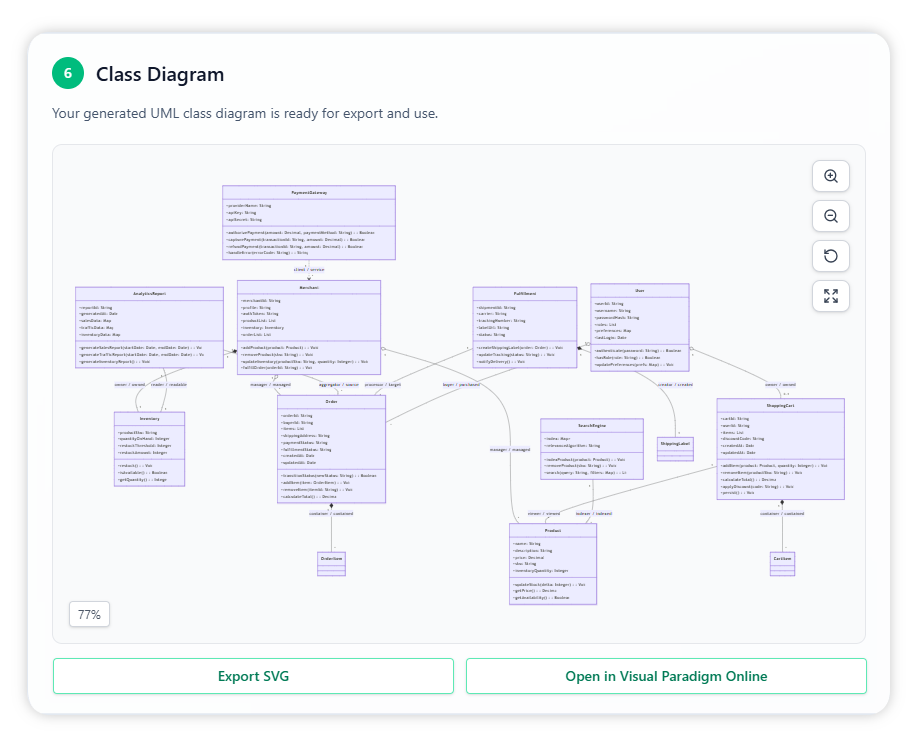 Visual Paradigm Desktop |
Visual Paradigm Desktop |  Visual Paradigm Online
Visual Paradigm OnlineAn E-Commerce Platform supports the buying and selling of goods or services online by connecting merchants and customers in a secure digital environment. It handles product listing, shopping cart functionality, checkout processes, and payment transactions while providing a smooth and engaging shopping experience.
Start by specifying the problem domain: E-Commerce Platform. This entry gives the AI the context it needs to begin mapping out the system’s scope and core functions.
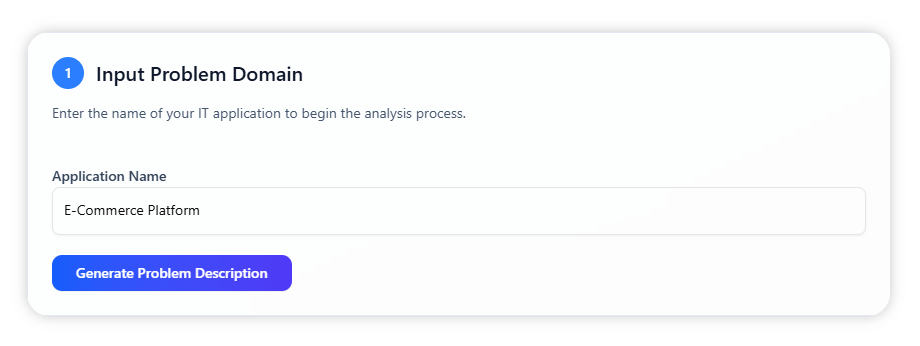
The AI produces a clear, editable problem statement that reflects the needs described, such as managing orders, tracking stock levels, and integrating with payment systems. You can refine this text to ensure it fully matches your project goals before moving on.
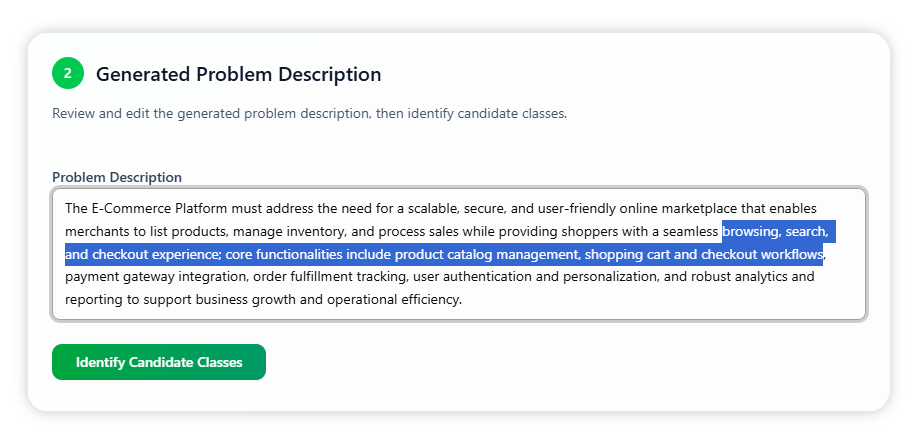
From the description, the AI highlights essential domain classes including Product, Merchant, Catalog, ShoppingCart, and Order. Each class is accompanied by a justification for its inclusion, an explanation of its role, and, where relevant, notes on why some suggestions may not meet the criteria for a class. Information is presented in collapsible panels for clarity.
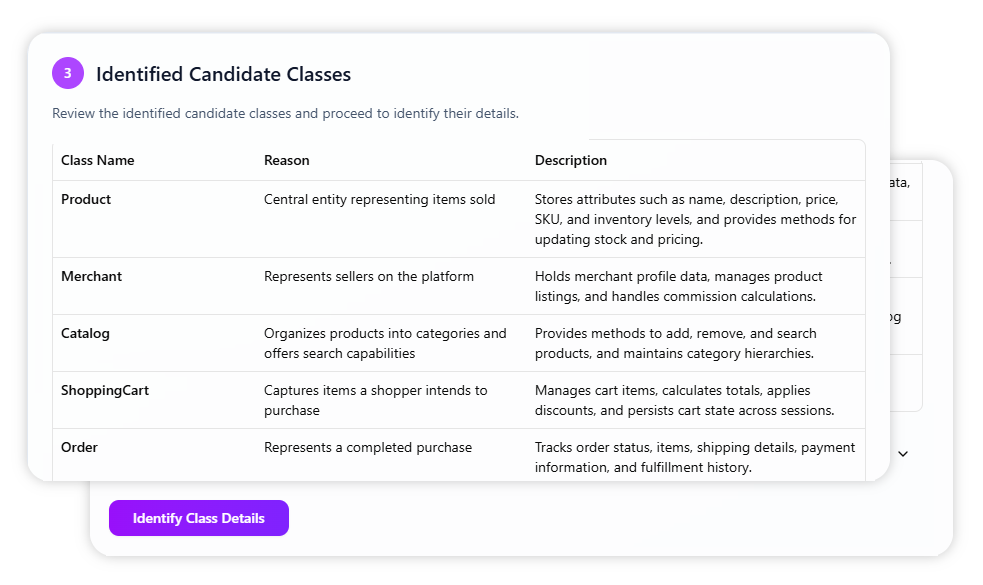
Once the classes are determined, the AI lists the relevant attributes and operations for each. Classes define the system’s main entities, attributes hold their defining data, and operations represent the tasks or actions they can perform. This structure offers a precise view of what each class contains and can do.
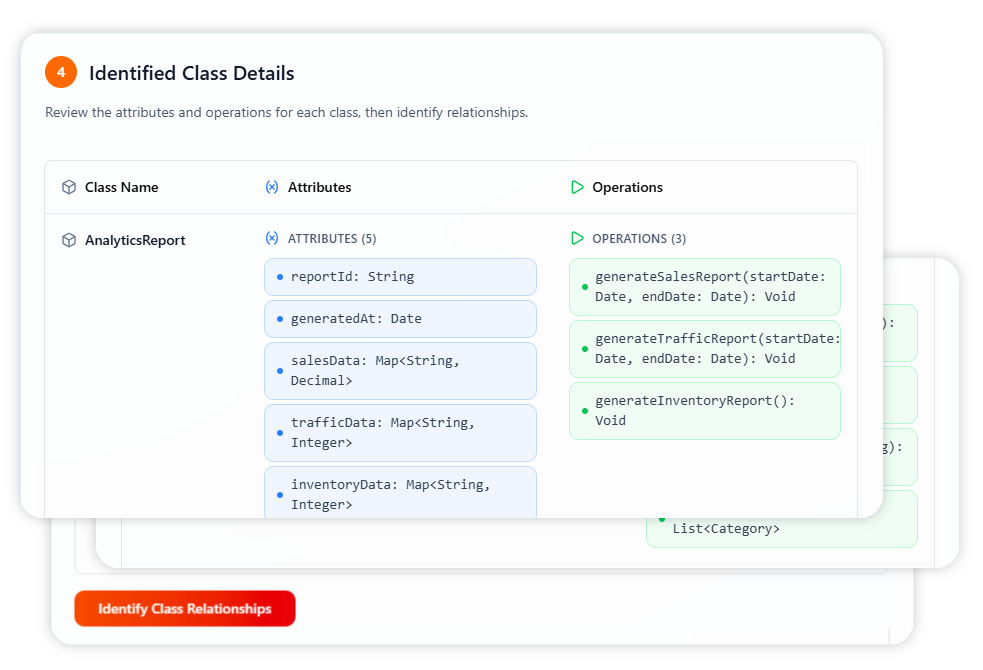
At this stage, the AI identifies how the classes connect to one another. The display includes the originating and receiving classes, the role each plays in the relationship, a description of the link, and the type of connection. This helps to visualize the system’s overall interaction model.
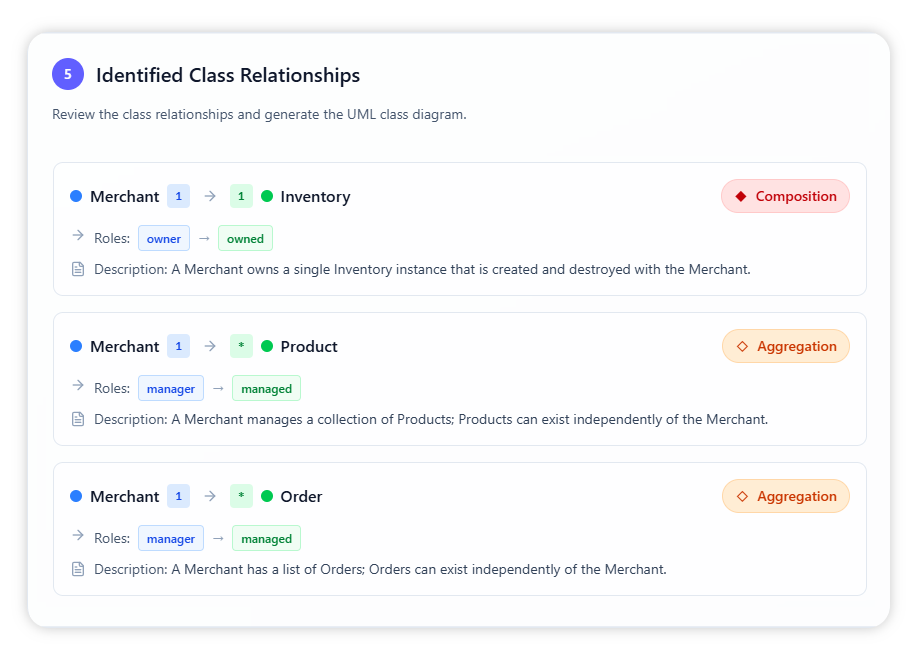
All the gathered elements are combined into a professional class diagram. You can instantly view it in your browser, export it in SVG format, or open it in Visual Paradigm Online for in-depth editing and refinement.
